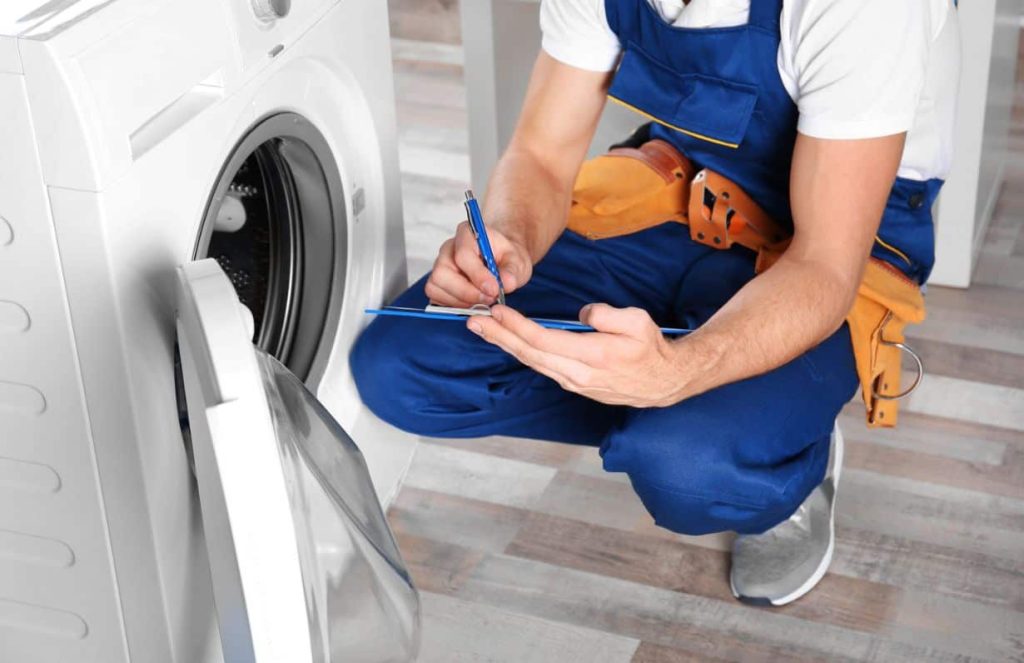Table of Contents
- Introduction
- Why Appliance Maintenance Matters
- The Benefits of Regular Maintenance
- Common Appliance Problems
- 4.1. Identifying Issues Early
- 4.2. When to Seek Professional Help
- General Maintenance Tips
- 5.1. Cleaning and Care
- 5.2. Lubrication and Tightening
- 5.3. Replacing Filters
- Appliance-Specific Maintenance
- 6.1. Refrigerator Maintenance
- 6.2. Washing Machine Maintenance
- 6.3. Oven and Stove Maintenance
- 6.4. Dishwasher Maintenance
- Safety Precautions
- 7.1. Electrical Safety
- 7.2. Gas Appliances Safety
- DIY vs. Professional Maintenance
- Extended Appliance Lifespan
- Conclusion
- Frequently Asked Questions (FAQs)
1. Introduction
Appliances are investments that enhance our quality of life, but they require care in return. Neglecting their maintenance can lead to costly repairs and premature replacements. In this guide, we will explore the importance of appliance maintenance and offer practical tips to help you avoid these inconveniences.
2. Why Appliance Maintenance Matters
Regular maintenance is crucial because it extends the lifespan of your appliances. It also ensures they operate efficiently, which can lead to energy savings and reduced utility bills. Most importantly, it minimizes the risk of unexpected breakdowns.
3. The Benefits of Regular Maintenance
Proactive maintenance not only saves you money but also reduces your carbon footprint. Well-maintained appliances consume less energy, contributing to a greener planet. Moreover, it keeps your home safe by preventing potential hazards.
4. Common Appliance Problems
4.1. Identifying Issues Early
Recognizing signs of trouble early can prevent major breakdowns. Unusual noises, leaks, or erratic behavior are warning signs that your appliance needs attention.
4.2. When to Seek Professional Help
While some maintenance tasks are DIY-friendly, complex issues should be handled by professionals. We’ll discuss when it’s time to call in the experts.
5. General Maintenance Tips
5.1. Cleaning and Care
Regular cleaning removes dirt and debris that can hinder an appliance’s performance. We’ll provide cleaning tips for various appliances.
5.2. Lubrication and Tightening
Proper lubrication and tightening of components ensure smooth operation. We’ll guide you through these essential tasks.
5.3. Replacing Filters
Many appliances rely on filters to function efficiently. Learn how to identify and replace filters to maintain peak performance.
6. Appliance-Specific Maintenance
We’ll delve into maintenance tips tailored to specific appliances:
6.1. Refrigerator Maintenance
Keep your fridge running efficiently and preventing food spoilage with our refrigerator maintenance tips.
6.2. Washing Machine Maintenance
Extend the life of your washing machine and avoid laundry day disasters with our washing machine maintenance guide.
6.3. Oven and Stove Maintenance
Ensure your oven and stove remain safe and cook food evenly by following our maintenance suggestions.
6.4. Dishwasher Maintenance
Don’t let dirty dishes pile up due to a malfunctioning dishwasher. Our maintenance tips will keep it running smoothly.
7. Safety Precautions
Safety should always be a priority when performing maintenance. We’ll cover electrical and gas appliance safety measures to protect your home and family.
8. DIY vs. Professional Maintenance
Learn which maintenance tasks you can tackle yourself and when it’s best to enlist professional help.
9. Extended Appliance Lifespan
Discover how regular maintenance can significantly extend the lifespan of your appliances, saving you money in the long run.
10. Conclusion
In conclusion, appliance maintenance is an investment in both your appliances’ longevity and your peace of mind. By following the tips outlined in this guide, you can enjoy the benefits of smoothly running appliances and a more energy-efficient home.
11. Frequently Asked Questions (FAQs)
Q1: How often should I perform maintenance on my appliances? Regular maintenance is typically recommended every three to six months, depending on the appliance. Refer to your appliance’s manual for specific guidelines.
Q2: Can I use generic replacement parts for my appliances? Using genuine replacement parts is usually the best option. Generic parts may not fit or function as effectively.
Q3: What should I do if I notice a gas leak from my stove or oven? If you suspect a gas leak, immediately turn off the gas supply, open windows for ventilation, and contact a professional technician or your gas provider.
Q4: Are there any energy-saving benefits to appliance maintenance? Yes, well-maintained appliances operate more efficiently, leading to reduced energy consumption and lower utility bills.
Q5: Is it worth it to maintain older appliances, or should I replace them? If an older appliance is well-maintained and still meets your needs, it may be more cost-effective to keep it rather than replacing it.
Now that you have a comprehensive guide to appliance maintenance, you’re well-equipped to ensure your appliances serve you faithfully for years to come.








